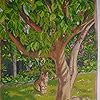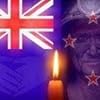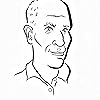Lina
asked:
Was Nevil Shute, author of 'A Town like Alice' a racist, or was he just recording the attitudes of the time? I did not enjoy reading this book because of the disrespectful attitude towards the aborigines. There was not one positive thing mentioned about them as far as I could see, but so much glorification of the heroine and her man. Not my cup of tea.
To answer questions about
A Town Like Alice,
please sign up.
Halford
As a person who lives in a country where different races live and are learning to combine and see the good in one another, I believe Shute was simply "telling it as it was". Many countries have been through stages in their development where one group was many generations behind another in what we know as civilisation. And Shute does show the remarkable loyalty and strength of one of Joe's "Abo" stockriders. But, his tale is about a remarkable young woman, and thus focuses on her. I certainly don't for one moment think he is racist. I think on the contrary he was bold / brave enough to paint the picture so that a reader might have the most accurate sense of life there at that time.
Fiona
Well said, Halford. All of Shute's novels were contemporary, and therefore are not influenced by modern sensibilities about racism. As said, he just wrote as the scene would have occurred. It is important to keep perspective on historical novels, acknowledge the history, and then be glad and determined that the present be different.
Kevin C
I have read all of his books and I do not believe he was a racist. He recorded the common attitudes of the time but there is nothing that implies he approved. Many times he sets those racist attitudes as a strawman and proceeds in the story to show how misguided they were. In this book the heroine was the woman who learned the native language & customs, and succeeded, in contrast to her conservative colleagues. In his book "In The Wet", set in 1983, 30 years in his future, the hero is a mixed race Aboriginal / European man who becomes captain of the Queen's flight and a personal friend of the Queen. In "The Chequer Board" one hero is a black American G.I. When American officers tell the landlord of an English pub that they should segregate, the landlord decides he would rather have the black customers and his locals rather than serve the racist officers.
Nicki Judson
You have to remember that the book is based after WWII, late 1940s-early 1950s and unfortunately what Mr Shute wrote about in this classic novel is how it was back then in Australia. He is not a racist, but recorded the slang of the day as it was then.
Hannah
I’m currently re-reading this after a gap of many years and the casually racist language and attitudes are uncomfortable for me. I have no frame of reference as to whether the author was himself racist but he certainly reflected a time I am glad is past.
David Bryant
Good point. I read it as a reflection of how a Brit of the immediate post-WWII period would write and think. And actually, I did not think too much about it myself, simply because I grew up in that era and recall how people spoke of minorities and particularly of the Japanese.
I loved the book, as a story, and did not think the aborigines were portrayed as poorly treated. But the Japanese officers were mostly shown in a very negative light, with more sympathy for the enlisted men who were accompanying the women on their treks. The language used to refer to Japanese was troublesome to my modern sensibilities, but realistic for the time. I can well remember the view of my family towards Japanese in years after WWII. In addition, I have read enough stories of WWII to know that the Japanese were often quite inhumane to their captives, so the attitudes in the writing are understandable. (And actually, the writer seemed to portray the situation as a "normal" aspect of war, however unpleasant it was.)
So no, I doubt Shute was racist in the sense we think of racism today, but was a reflection of his times and situation.
I loved the book, as a story, and did not think the aborigines were portrayed as poorly treated. But the Japanese officers were mostly shown in a very negative light, with more sympathy for the enlisted men who were accompanying the women on their treks. The language used to refer to Japanese was troublesome to my modern sensibilities, but realistic for the time. I can well remember the view of my family towards Japanese in years after WWII. In addition, I have read enough stories of WWII to know that the Japanese were often quite inhumane to their captives, so the attitudes in the writing are understandable. (And actually, the writer seemed to portray the situation as a "normal" aspect of war, however unpleasant it was.)
So no, I doubt Shute was racist in the sense we think of racism today, but was a reflection of his times and situation.
Dave Wegner
The book is racist and it isn't simply because it was written in 1950. In 1852 Harriet Beecher Stowe wrote 'Uncle Tom's Cabin.' In that novel she fleshed out Black characters like no one before her had done. In 1937 Zora Neale Hurston wrote 'Their Eyes Were Watching God,' in 1940 Richard Wright wrote 'Native Son,' in 1952 Ralph Ellison wrote 'Invisible Man.' All of these novels explored the concept of racial injustice and the impact that racism was having on the lives of complex, well developed Black characters. In 1950, one hundred years after Stowe's 'Uncle Tom,' and contemporaneously with Hurston's, Wright's and Ellison's writings (to name just a few), Nevil Shute wrote 'A Town Called Alice' and couldn't be bothered to flesh out a single Black character beyond the level of whatever racist tropes existed in Australia at the time. In his novel Shute accepted if not condoned racism wholly without comment, judgement or regret. In fact, in my view, the nonchalance with which it is depicted can only be described as tacit approval. At one point the characters are talking about how many people live in Willstown. "There's about 450 people living in Willstown. That's not counting boongs..." says Joe Harman, one of the main protagonists of the novel, without so much as a second thought. Oh, the apologists say, you have to judge this novel in the context of the times in which it was written, and not by today's more refined sensibilities. That argument ignores entirely the fact that in 1950 (and even before then) there were many many people condemning (as opposed to accepting) the rampant racism that existed at the time. Shute knew, or should have known, that racism was a social evil because other authors, good authors (see above), were actively telling him so, plenty of them. Nevertheless, Nevil Shute incorporated racism into his novel not as social commentary aimed at exposing a wrong, but because he didn't see an issue with it. It just was something to include...like the weather. This novel is not simply a product of the racism that was rampant at the time it was written, it is instead one of the reasons racism was rampant at the time.
Lori
I didn’t find the author racist at all. The language of the time. Mark Twain uses the n word. Jean even comments on the endurance of Beaumont and she couldn’t have done it without him. The women cared for the enlisted Japanese and tried to save him. The captain was a cruel man, we find them in every race. You can’t read a book of that era with modern sensibilities- but we sure can appreciate that this wouldn’t be accepted now.
Kelly Erickson
As someone who lived there within the last 20 years, the attitudes haven't changed much. Aboriginal people were still called "abo", and were treated badly and discriminated against.
Bill Marshall
Look at it this way: Seventy years from now many of the attitudes you have now will seem narrow minded and bigoted to intelligent thirty-year olds. "Why did this Lina person use the words 'heroine' and 'man'?" they may ask, yet you are not considered a racist by today's standards.
Carole A. Beghein
During the time period this book was written I believe, it was an accurate description of that period in history.
About Goodreads Q&A
Ask and answer questions about books!
You can pose questions to the Goodreads community with Reader Q&A, or ask your favorite author a question with Ask the Author.
See Featured Authors Answering Questions
Learn more










